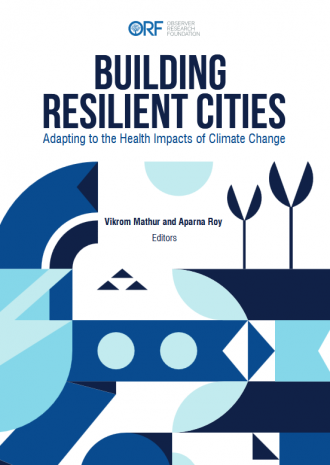Urban populations and city dwellers, particularly in low- and middle-income countries, are especially susceptible to the health impacts of climate change. Urban areas, with their dense populations, are more affected by extreme weather events and often have large populations living in insecure informal settlements where access to basic necessities like water, sanitation and healthcare is limited. There is an urgent need for better urban-focused research and the implementation of strategies to address these vulnerabilities, particularly as urban populations continue to grow. Without such actions, the health impacts of climate change in cities are likely to become even more severe.
In three sections comprising nine essays, this volume attempts to examine and address these issues. Section I, ‘Framing the Challenge’, explores the mechanisms that make cities especially vulnerable to climate impacts and examines why certain communities bear a disproportionate burden of these impacts. The essays in Section II, ‘Climate Change and Health Outcomes’, map the diverse climate-related health impacts on city dwellers, from heat stress to infrastructure-related hazards. Section III, ‘Solutions: Healthy Cities’, charts plausible paths forward, with the aim of making urban populations more resilient to climate change impacts.
This volume was soft-launched at COP29 during an official UNFCCC side event on climate and health on 14 November, 2024, underscoring its significance and the global attention it has drawn towards integrating climate action and public health. In the frame of its project on Climate Change and Health, the IAP contributed to this volume with the opening chapter "Framing the Challenge, Urbanisation and Climate Change: Shared Risks, Health Challenges and Pathways to Resilience", written by Robin Fears, Peter McGrath and Montira Pongsiri.
Growing urban populations and climate change impacts necessitate informed, decisive action. This volume aims to serve not only as a comprehensive resource for researchers and development practitioners but also as a catalyst for transformative change. By bringing together diverse perspectives from the domains of public health, urban planning and climate science, we aim to advance our understanding of these complex challenges and outline a course towards more resilient, equitable and healthy cities for future generations.
This volume was published by ORF (Observer Research Foundation), here.
